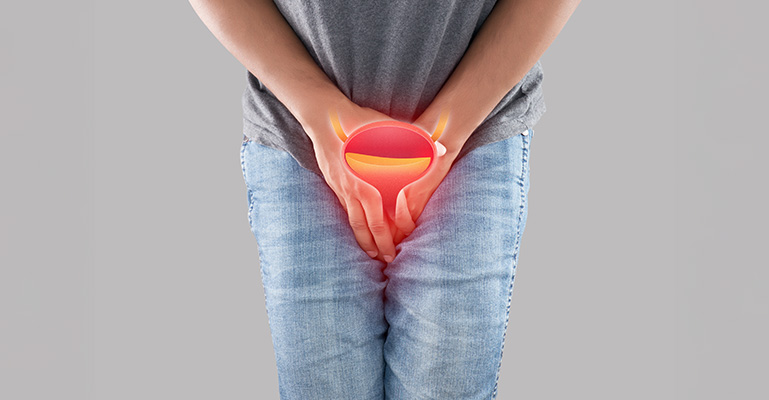



Urinary tract infections (UTIs) are one of the most common bacterial infections, especially among women. Studies show that at least 50–60% of women will experience a UTI at some point in their lives. UTI in women is more frequent because of anatomical factors, such as a shorter urethra, which allows bacteria to reach the bladder more easily.
A UTI occurs when harmful bacteria most commonly Escherichia coli (E. coli)—enter the urinary tract and begin multiplying. The urinary system includes the kidneys, ureters, bladder, and urethra. When bacteria invade any part of this system, it leads to inflammation, infection, and significant discomfort. Although UTIs are often not dangerous when treated promptly, delaying care can lead to kidney damage or more severe infections.
Early detection is essential for effective management. UTIs often present the following symptoms:
A frequent and urgent need to urinate
Burning sensation or pain during urination
Cloudy, strong-smelling, or dark-colored urine
Pelvic pain or pressure in the lower abdomen
A feeling of incomplete bladder emptying
Fever, chills, or nausea (indicating a possible kidney infection)
Urinary incontinence or leakage
These symptoms can be distressing, particularly for those experiencing UTI in women, where the risk of recurrence is high if not properly treated.
Practicing daily preventive habits can lower the chances of developing a urinary tract infection:
Drink More Water: Staying hydrated helps flush bacteria from the urinary system.
Don’t Hold Urine: Empty your bladder regularly to prevent bacterial buildup.
Wipe Correctly: After using the toilet, always wipe from front to back to prevent the spread of bacteria.
Urinate After Intercourse: This helps flush out bacteria that may have entered during sexual activity.
Wear Breathable Underwear: Cotton underwear allows airflow and helps keep the genital area dry.
These steps are especially helpful for UTI in women, as they are more vulnerable due to physiological and hormonal factors.
In Ayurveda, UTIs are often linked to an imbalance in Pitta dosha, the element associated with heat and metabolism in the body. An increase in Pitta leads to inflammation and irritation in the urinary channels, known as Mutravaha Srotas. This results in symptoms like burning urination, discomfort, and foul-smelling urine.
UTI Ayurvedic treatment aims to pacify the aggravated dosha, cleanse the urinary system, and restore the body's natural balance. Rather than just targeting symptoms, Ayurvedic care looks at the root cause and focuses on long-term healing and recurrence prevention.
Ayurveda uses natural herbs and formulations to support urinary tract health. Some of the most prescribed ayurvedic medicines for UTI include:
Chandraprabha Gulika: A classic formulation that supports bladder health and reduces inflammation.
Punarnavadi Kashayam: Known for its diuretic and detoxifying effects, helping flush out bacteria.
Bruhathyadi Kashayam: Supports healthy urination and reduces burning sensation.
Vasthyamayanthakam Ghrutham: Medicated ghee used to nourish the urinary tract and pacify aggravated doshas.
Ardhavilwam Kashaya Choornam: Helps reduce pain and restore normal urination.
These remedies are part of a larger UTI Ayurvedic treatment protocol, which may also include dietary changes, lifestyle adjustments, and internal detox therapies.
You can buy Ayurvedic medicines from Vaidyaratnam online Ayurvedic store to ensure authentic and traditionally prepared herbal products recommended for urinary infections.
It’s crucial to consult a qualified Ayurvedic practitioner before starting any herbal medicine. Self-diagnosis or over-the-counter solutions might worsen symptoms or delay recovery.
While ayurvedic medicine for UTI can offer natural, side-effect-free support, it should not replace urgent medical treatment when required. In cases of high fever, severe pain, or blood in urine, it is important to seek immediate medical care.
Many patients now follow an integrative approach—using UTI Ayurvedic treatment as a preventive or maintenance strategy after initial recovery with antibiotics. This combination can improve immunity, support bladder health, and reduce the risk of recurrence.
UTIs are uncomfortable but manageable health issues when addressed promptly and correctly. UTI in women should be taken seriously due to the higher risk of recurrence and complications. Prevention through hydration, hygiene, and lifestyle adjustments is key.
Ayurveda offers a gentle yet powerful way to support urinary health naturally. Whether you’re exploring ayurvedic medicine for UTI as a standalone solution or as part of an integrative approach, personalized care is essential. Always consult experts to ensure the safest and most effective outcomes.




